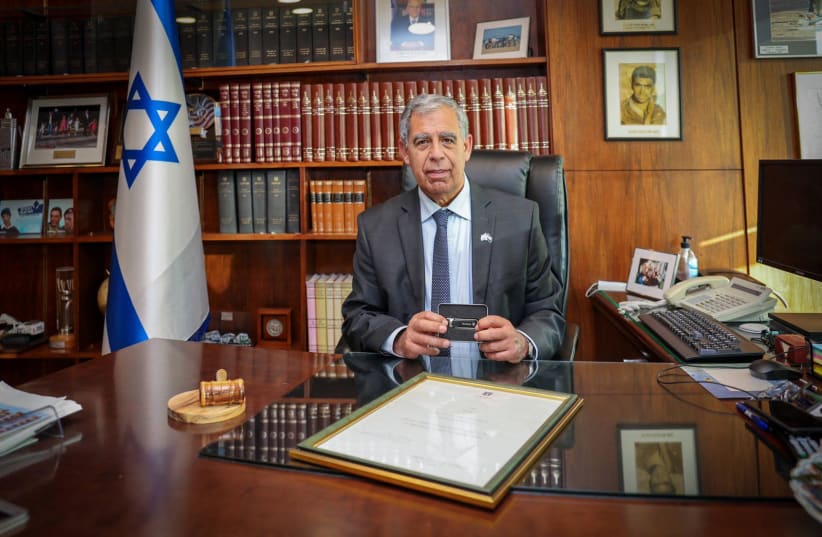Knesset Speaker Mickey Levy prevented his Yesh Atid colleague, MK Vladimir Beliak, from coming to vote in the parliament on Wednesday, after he tested positive for the novel coronavirus.
During the tenure of previous speaker Yariv Levin (Likud), MKs in quarantine were permitted to come vote in the Knesset press gallery. Levy, who met with Knesset officials and health care professionals before making his decision, set a precedent by requiring Beliak to stay home.
“The right to vote is a fundamental right for a public servant,” Levy said. “During a time of corona, there is also an obligation for the Knesset to maintain the health of the public and its elected officials. When balancing these two important principles, unfortunately we cannot let an MK sick with corona vote and exercise that right.”
According to the Knesset spokesperson, Beliak was fully vaccinated. Levy said he would work to find a solution to the problem for the future.
His decision resulted in the postponement of bills supported by the coalition, including a basic law setting the rules for a rotation government.
The coalition voted down several bills submitted by opposition MKs, including a bill initially supported by many coalition MKs that would remove the citizenship of a terrorist who receives a stipend from the Palestinian Authority. The bill fell by a vote of 63 to 49.
Voting on a controversial bill, which would decriminalize the possession of up to 50 gr. of cannabis or 15 cannabis seeds for individual recreational use, was postponed by two weeks on Wednesday, following a stormy debate in the Knesset plenum.
The bill’s sponsor, New Hope faction head Sharren Haskel, agreed to the delay at the request of Ra’am (United Arab List) head Mansour Abbas, who opposes it for religious reasons. She expressed confidence that the bill would pass after compromises would be reached.
Haskel delivered an impassioned plea to Abbas to support the bill, saying that it would benefit his Israeli Arab constituents. She pointed out that 45% of Arab citizens have used cannabis and a third of those arrested for possession are Arabs.
Knesset member Michal Woldinger, who has treated thousands of young people in drug rehab centers, delivered an equally emotional address against the bill, which she warned would lead to more people using cannabis.
The law would change the current fining system for cannabis use in public. While users now face fines for first-time offenses of NIS 1,000 and second-time offenses of NIS 2,000 before criminal charges are issued, the new law would lower the fines to NIS 500 and eliminate the option to criminalize the user.
If someone is found to possess over 50 gr. of cannabis in public, but can prove that it is meant for their own personal use, they will receive a fine of NIS 2,000 and avoid criminal charges.
While this legislation would still prevent recreational cannabis shops from opening up, the new government sees decriminalization as a necessary first step while they prepare the much more complex legislation needed to create a framework for a legal, recreational cannabis market.
The bill would also allow people to appeal to the attorney-general to retroactively void any criminal records they may have as a result of recreational cannabis use, and reclassify CBD as a food additive.
